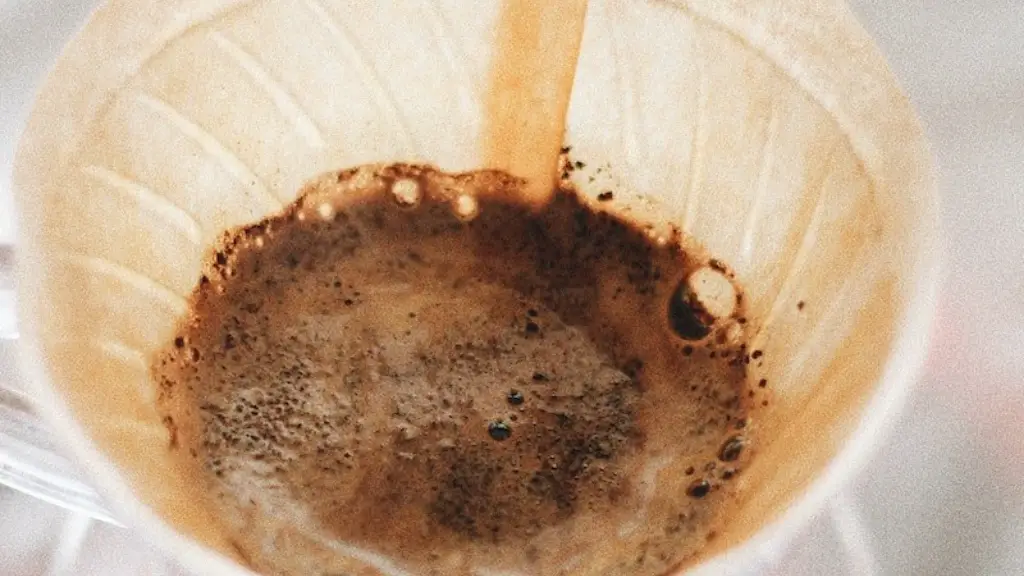The Caffeine Jolt
Coffee is a popular beverage, providing millions of people with a daily ritual and an energy boost. But for some, this experience can be less than pleasant. Feeling sick after drinking coffee might be a sign that you have gone overboard with the stuff, or it could mean something even worse.
Signs of Caffeine Overdose
Caffeine overdose can happen with anything that contains caffeine including coffee, tea, soda, and medications. If a person experiences the following symptoms they may be suffering from an overdose: restlessness, insomnia, jitteriness, headaches, heart palpitations, and irritability. If these symptoms occur, the person should limit their consumption of caffeine and visit their doctor if symptoms persist.
What Causes You to Feel Sick After Coffee?
There are several potential causes for feeling sick after drinking coffee. It may be due to caffeine sensitivity, or the type of coffee you are drinking, or even the brewing method. Additionally, some people might react to the proteins and oils in the coffee, feeling nauseous or having a pounding headache. Lastly, the caffeine itself can cause an imbalance in the acidity of the stomach, leading to feelings of nausea.
What to Do if You Feel Sick After Coffee
If you find yourself feeling sick after drinking coffee, the first thing you should do is stop drinking it and switch to a non-caffeinated alternative. Then, track your symptoms and determine which type of coffee triggers your reactions, and switch to a milder brew. Also avoid adding sugar, creamer, or any other additives to your coffee. Drink plenty of water, exercise regularly, and keep a healthy diet. Lastly, try to eliminate other sources of caffeine, such as tea, soda, and energy drinks.
Finding a Balance
The goal is to find a healthy balance with coffee. Try drinking coffee in the morning and limit your caffeine intake during the rest of the day. Start out with a small amount (e.g. a cup or two) and gradually increase as your body can tolerate it. Decaffeinated coffee can also be an alternative for people who experience negative reactions to caffeine. Additionally, there are other beverages that can provide an energy boost without the jittery feeling or nausea.
Long-Term Effects
Feeling sick after coffee could be an indication that you’re drinking too much of the stuff. Drinking coffee in excess can lead to long-term side effects such as increased blood pressure, increased risk of osteoporosis, dehydration, anxiety, and insomnia. Consuming too much caffeine can also lead to dependency and can make it difficult to reduce your intake.
The Bottom Line
Overall, it’s important to be mindful of your coffee intake. Feeling sick after coffee could mean that you’re drinking too much of it. Make sure to drink plenty of water and reduce your intake of other sources of caffeine. Pay attention to the type of coffee you are drinking and opt for milder brews or decaffeinated options if needed. Taking these precautions can help to ensure that you’re getting all the benefits of coffee with none of the drawbacks.
Coffee Alternatives
If coffee doesn’t agree with you, there are plenty of other beverages that can provide you with the morning energy boost you crave. Herbal teas, smoothies, and juices are all great sources of energy that can provide you with plenty of micronutrients and satisfaction. There is a wide range of herbal teas that can provide the same pick-me-up as coffee, such as green tea, ginseng, and guarana. Smoothies and juices are also excellent choices and can be made with ingredients such as bananas, spinach, and avocados.
B-Vitamins for Energy
Another option is to take a daily B-vitamin supplement to get your energy boost. B-vitamins are known to boost energy levels and can be taken in the form of pills, powders, or liquid drops. B-vitamins can help to maintain mental focus and wellbeing, and will provide you with the energy you need without the jittery feelings or nausea.
Nootropics for Mental Performance
Finally, nootropics are supplements that are designed to enhance mental performance. These supplements can provide an energy boost without the crash or stomach issues associated with coffee. Popular nootropic ingredients include ginkgo biloba, bacopa, Rhodiola rosea, and ashwaganda. Nootropics can support mental clarity, focus, and alertness and can be taken daily for an ongoing energy boost.


